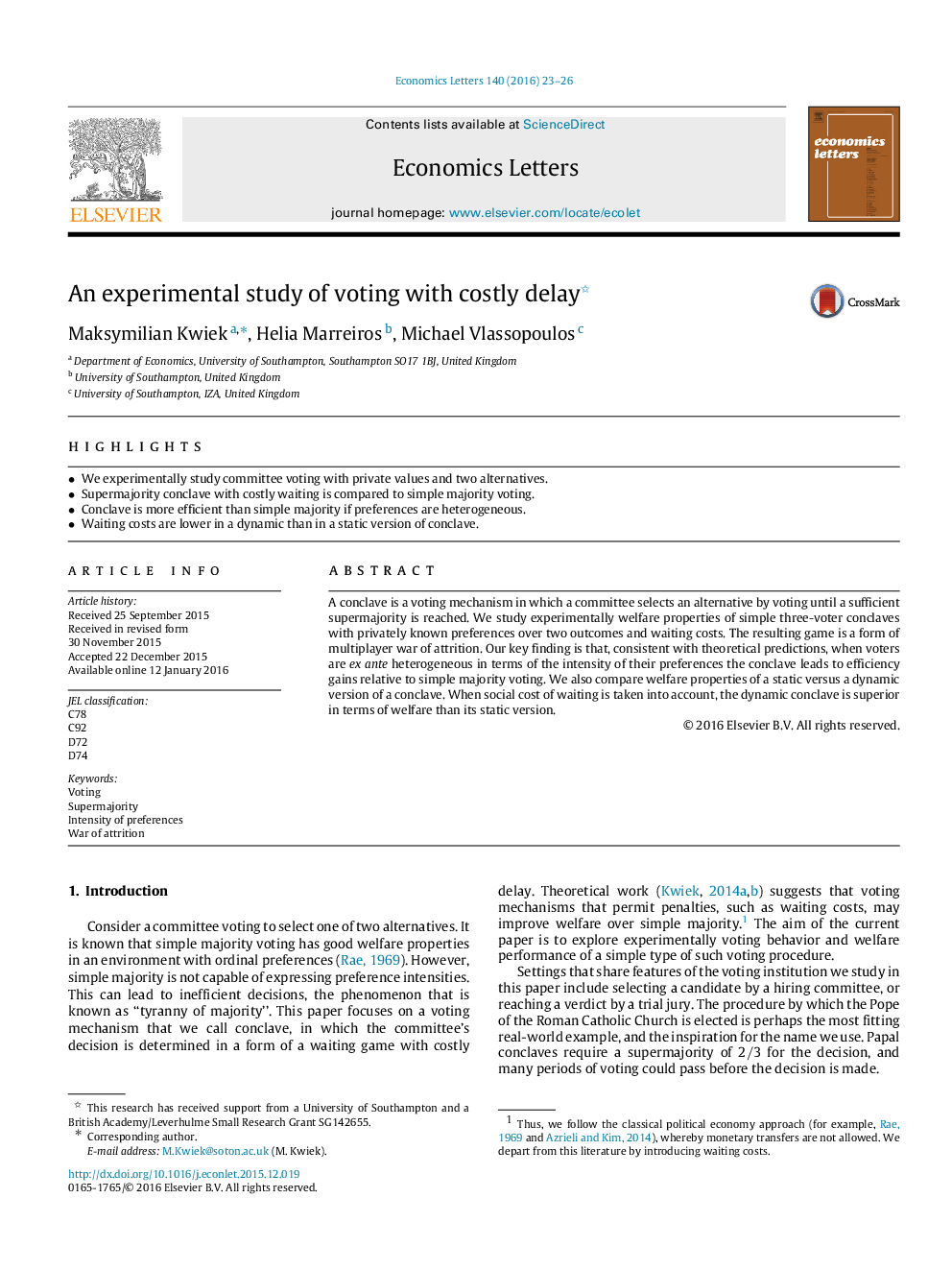| Article ID | Journal | Published Year | Pages | File Type |
|---|---|---|---|---|
| 5058324 | Economics Letters | 2016 | 4 Pages |
â¢We experimentally study committee voting with private values and two alternatives.â¢Supermajority conclave with costly waiting is compared to simple majority voting.â¢Conclave is more efficient than simple majority if preferences are heterogeneous.â¢Waiting costs are lower in a dynamic than in a static version of conclave.
A conclave is a voting mechanism in which a committee selects an alternative by voting until a sufficient supermajority is reached. We study experimentally welfare properties of simple three-voter conclaves with privately known preferences over two outcomes and waiting costs. The resulting game is a form of multiplayer war of attrition. Our key finding is that, consistent with theoretical predictions, when voters are ex ante heterogeneous in terms of the intensity of their preferences the conclave leads to efficiency gains relative to simple majority voting. We also compare welfare properties of a static versus a dynamic version of a conclave. When social cost of waiting is taken into account, the dynamic conclave is superior in terms of welfare than its static version.
